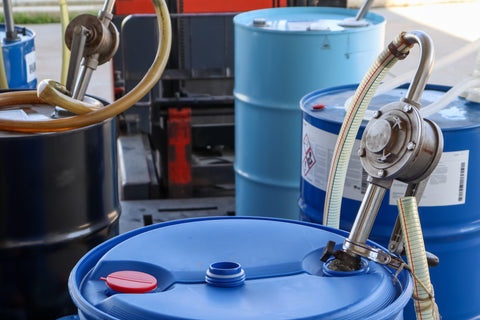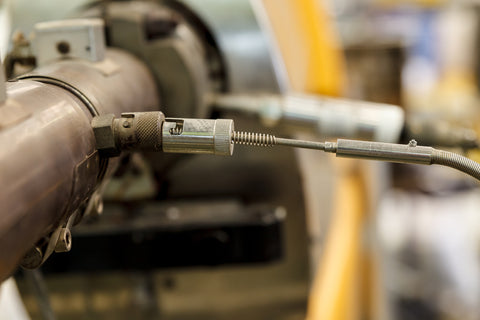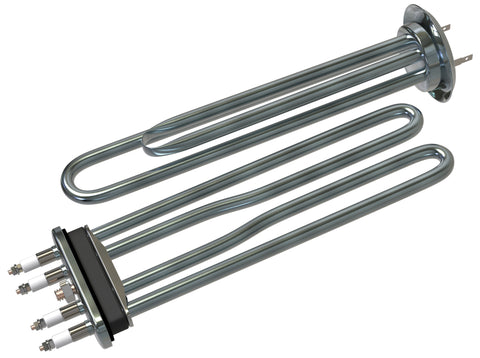Setting the Stage: Why Temperature Matters in Diesel Drum Storage
In the complex world of industrial fuel management, the efficiency and safety of storing diesel cannot be overstated. Central to this is the use of 55-gallon diesel drums, a staple in the industry, where temperature control is a pivotal factor. This introductory section will delve into why maintaining the right temperature is crucial for both the quality of the diesel and the longevity of the storage barrels.
Moreover, improper temperature management can lead to significant financial losses and operational challenges. For instance, diesel fuel exposed to high temperatures for prolonged periods may become less effective, leading to inefficient fuel combustion and increased expenses. Conversely, if it is exposed to low temperatures, it may thicken, causing challenges in pumping and usage. This section will thus underscore the importance of understanding and managing the temperature to ensure operational efficiency and cost-effectiveness.
Can you store diesel in a 55-gallon drum?
Yes, you can store diesel in a 55-gallon drum. These drums are commonly used for diesel storage due to their convenient size, durability, and compliance with regulatory standards for fuel storage. However, there are several important considerations to keep in mind:
-
Material of the Drum: This fuel should be stored in barrels that are made of materials compatible with diesel fuel, such as steel or high-density polyethylene (HDPE). It is important to ensure that the drum material does not react with diesel fuel.
-
Venting: Drums should be properly vented to prevent pressure build-up due to temperature changes.
-
Location: The drum should be stored in a cool, well-ventilated area away from direct sunlight, high temperatures, and ignition sources.
-
Safety Regulations: It's important to follow local and national safety regulations regarding the storage of diesel. This includes aspects like secondary containment to prevent spills, proper labeling, and maintaining safe distances from buildings and other storage materials.
-
Maintenance: Regular inspection for leaks or corrosion is essential. Diesel should also be used within a reasonable time frame to prevent degradation of the fuel.
-
Temperature Control: As discussed earlier, maintaining an optimal temperature is crucial for diesel quality. Extreme temperatures can affect the fuel's performance.
The Essentials of 55 Gallon Diesel Drums: A Comprehensive Overview
55-gallon drums are ubiquitous in many industrial and logistical settings. These robust containers are essential for storing and transporting fuel, a critical resource for various engines and industrial processes.
This section will further explore the construction and materials used in 55-gallon diesel drums, emphasizing their design to withstand harsh environmental conditions and prevent leakage or contamination. Additionally, the versatility of these barrels in various settings, including construction sites, agricultural operations, and transportation sectors, will be highlighted. Understanding these factors is essential for anyone involved in the procurement, use, or maintenance of these indispensable industrial tools.
The Impact of Temperature on Diesel Quality
Temperature plays a pivotal role in 55-gallon diesel drum quality maintenance. Extreme temperatures can lead to issues like fuel degradation or condensation, which can adversely affect engine performance and efficiency. One can significantly enhance fuel effectiveness by understanding the relationship between temperature and diesel properties.
Furthermore, this section will delve into the science behind its reaction to temperature changes. For instance, it begins to cloud and gel at low temperatures, a process that can clog filters and lines. At high temperatures, the rate of fuel oxidation increases, which can lead to the formation of harmful deposits in engines. This discussion will lay the groundwork for the subsequent sections, offering practical solutions and best practices for maintaining optimal temperature in diesel drum storage.

Optimal Storage Solutions for Diesel Drums
The storage of 55-gallon drums requires careful consideration. Keeping these drums in a temperature-controlled environment ensures the fuel remains in its optimal state. This involves choosing suitable equipment and storage locations that protect the drums from extreme weather conditions, thereby preserving the fuel's integrity.

Additionally, the use of heated blankets made from durable vinyl material is an innovative solution for temperature regulation, especially for drums containing hazardous materials like diesel. These blankets are designed to wrap around the drums, providing uniform heat distribution that prevents diesel from thickening in cold temperatures. Such blankets are particularly valuable in outdoor storage areas, fuel and lube trucks, or in environments where temperatures drop significantly, ensuring that the diesel remains fluid and ready for use.
Selecting the Right Pump and Filters
Equipping drums with the right pump and filters is crucial for maintaining fuel quality. Pumps facilitate efficient fuel transfer, while filters ensure impurities and moisture are kept at bay, contributing to the overall longevity and performance of the fuel.

In this context, selecting pumps and filters that can operate effectively under various temperature conditions is important. Pumps should be robust enough to handle diesel at different viscosities, which temperature changes can influence. Similarly, filters should be capable of removing condensation and impurities that may form or become more problematic in certain temperature conditions. This careful selection ensures uninterrupted fuel quality and availability regardless of external temperatures.
Monitoring and Maintaining Diesel Drum Temperature
Regular monitoring of the temperature within diesel drums is essential. Tools and techniques such as thermal blankets or temperature gauges can be employed to keep a constant check, ensuring the diesel remains within its ideal temperature range.
Advanced temperature monitoring solutions, like wireless sensors, can provide real-time data on the fuel temperature, allowing for immediate adjustments. These technologies, when used in conjunction with heated blankets, offer a comprehensive solution for temperature management. The heated blankets maintain a steady temperature while the sensors monitor and provide feedback, ensuring the diesel is stored in the best possible conditions to maintain its quality and efficiency.
The Role of Insulation and Covers
Insulating 55-gallon drums and using protective covers can significantly mitigate the effects of external temperature fluctuations. This is a simple yet effective strategy to maintain a consistent temperature, safeguarding the diesel from environmental variables.
In particular, covers made from high-quality, weather-resistant materials like heavy-duty vinyl can be highly effective. These covers not only insulate against cold but also protect the drums from direct sunlight, rain, and other environmental factors that can cause temperature variations. This dual protection is crucial in maintaining the integrity of the diesel, preventing both overcooling and overheating, which can have detrimental effects on fuel quality and safety.
Safety and Efficiency in Handling Diesel Drums
Handling 55-gallon diesel drums requires adherence to safety protocols to prevent accidents and ensure efficient operation. This includes proper training in handling equipment, understanding the properties of diesel, and ensuring all safety measures are in place.
Additionally, it's crucial to implement emergency response procedures in case of spills or leaks. Workers should be trained in the use of spill kits and containment measures. Regular safety drills and reviews of handling procedures can significantly reduce the risk of accidents. Emphasizing the importance of personal protective equipment (PPE) such as gloves, goggles, and appropriate footwear is also key. These practices not only ensure the safety of the individuals handling the drums but also contribute to maintaining the integrity of the diesel fuel.
Innovative Technologies in Diesel Storage
The industry continues to evolve with new technologies emerging for the storage and management of diesel in drums. These advancements aim to enhance safety, efficiency, and environmental compliance, further optimizing the use of diesel in various applications.
One such technological advancement is the integration of smart sensors and IoT (Internet of Things) devices in diesel storage systems. These devices can monitor levels, temperature, and even the quality of diesel in real time, transmitting data to a central system for analysis. This allows for proactive maintenance and immediate response to any changes that could affect fuel quality or safety. Additionally, automation in fuel transfer and dispensing processes reduces the chance of human error and increases operational efficiency. These technologies represent a significant step forward in making diesel storage safer and more efficient.
Wrapping Up: Key Insights on Temperature Management in Diesel Storage
In conclusion, the importance of temperature management in storing and handling diesel in 55-gallon drums cannot be overstated. By adhering to best practices in temperature control, selecting the right equipment, and staying informed about new technologies, one can ensure the optimal use and longevity of diesel fuel.







